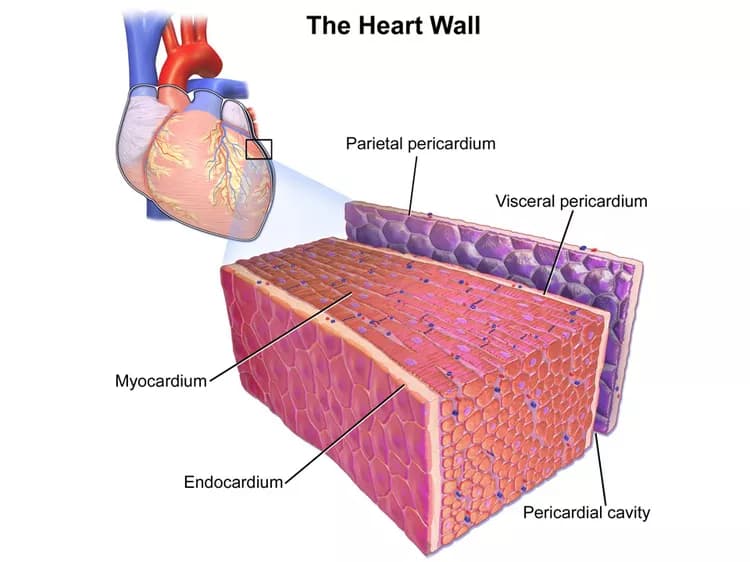
Response After Single Treatment With Canakinumab Predicts Which Patients Will Benefit Most
A new analysis seeks to answer the question of which patients are likely to gain the greatest cardiovascular benefit when treated with the anti-inflammatory agent canakinumab. At the 2017 American Heart Association Scientific Sessions, Paul M. Ridker, MD, director of the Center for Cardiovascular Disease Prevention at Brigham and Women's Hospital, presented a pre-specified analysis on CANTOS (Canakinumab Anti-inflammatory Thrombosis Outcomes Study) that identifies a simple, clinical method to define patient groups most likely to benefit from long-term canakinumab treatment. The results of this analysis, published simultaneously in The Lancet, could have a major impact not only on patient selection and cost-effectiveness of canakinumab, but also on the future development of anti-inflammatory agents for cardiovascular disease.
"We believe the clinical approach of targeting treatment to those who truly benefit on the basis of biologic response represents an elegant step toward personalized medicine and rational resource utilization," said Ridker. "Figuring out which patients with residual inflammatory risk benefit the most will allow us to get the right drug to the right patient, greatly reducing costs as well as hazards."
Major findings from the CANTOS trial were presented earlier this year. The trial was designed to test whether canakinumab, which lowers inflammation independent of lipid levels, could reduce risk of a future cardiovascular event by reducing inflammation among people who have had a prior heart attack and who have persistently elevated levels of the inflammatory biomarker high-sensitivity C-reactive protein (hsCRP) despite aggressive care. Overall, the trial found a significant fifteen percent reduction in risk of recurrent heart attacks, strokes and cardiovascular death among participants who received canakinumab at doses of either 150mg or 300mg, given once every three months. The critical question Ridker and colleagues have further investigated is whether reductions in the magnitude of inflammation achieved after a single treatment with canakinumab can predict greater or lesser clinical benefit for individual patients.
In the new analysis, the team found that baseline characteristics did not modify the effect of canakinumab on clinical outcomes. However, the magnitude of decrease in hsCRP with canakinumab related directly to the magnitude of clinical benefit associated with continued long-term therapy. For those treated with canakinumab who achieved hsCRP levels below 2mg/L after one dose, cardiovascular and all-cause mortality were both reduced by 31 percent with prolonged treatment. By contrast, no statistically significant reduction in these endpoints was observed among those treated with canakinumab who achieved hsCRP levels equal to or above 2mg/L. Similar large differences in all major cardiovascular outcomes were observed among those who did and did not have robust responses to initial therapy.
"The magnitude of hsCRP reduction following a single dose of canakinumab may provide a simple clinical method to identify individuals most likely to accrue the largest benefit from continued treatment. These data further suggest that 'lower is better' for inflammation reduction with canakinumab," said Brendan Everett, MD, an investigator in CANTOS and director of the General Cardiology Inpatient Service at BWH.
"While prior analyses have examined hsCRP as a predictive biomarker in the context of statin therapy, which both lowers cholesterol and lowers inflammation, our study is the first to analyze outcome data for an agent that only reduces inflammation without concomitant effects on cholesterol," Ridker said. "Our work suggests that patients with 'residual inflammatory risk' represent a separate and distinct group from patients with 'residual cholesterol risk' who likely require different personalized approaches to treatment."
The authors note that their findings could have implications for patient selection, cost-effectiveness and drug design and development going forward, with the potential to increase canakinumab's benefit to risk ratio. For example, the five-year number needed to treat (NNT) is 16 for among those treated with canakinumab who achieved hsCRP concentrations less than 2mg/L. By contrast, the five-year NNT was 57 for those who did not achieve this on-treatment hsCRP threshold. The occurrence of fatal infection observed in CANTOS among approximately one in every 1,000 patients treated was not related to the magnitude of inflammation reduction.
"The new analyses will be quite relevant to physicians, regulators, and payers who are all trying to understand how to achieve the greatest efficacy with the minimal hazard," said Peter Libby, MD, a CANTOS investigator with long-standing interests in inflammation biology.
"Reaching goals is critical for patients and physicians," said Roger Blumenthal, MD, the Kenneth J. Pollin Professor of Cardiology at Johns Hopkins University School of Medicine. "The new CANTOS analysis makes it clear that biologic response matters greatly. Reaching on-treatment hsCRP goals after taking canakinumab is a strong marker for long-term success."
More details about the cardiovascular findings from CANTOS can be found here. In CANTOS, cancer deaths were cut in half by canakinumab. Details about findings related to cancer death reductions can be found here. Ridker is also the principal investigator of the NHLBI-funded Cardiovascular Inflammation Reduction Trial that seeks to find out if low-dose methotrexate, an inexpensive generic anti-inflammatory agent, might have similar effects. That trial will complete in two to three years.
Materials provided by Brigham and Women's Hospital. Note: Content may be edited for style and length.
Disclaimer: DoveMed is not responsible for the accuracy of the adapted version of news releases posted to DoveMed by contributing universities and institutions.
References:
Paul M Ridker et al. (2017). Relationship of C-reactive protein reduction to cardiovascular event reduction following treatment with canakinumab: a secondary analysis from the CANTOS randomised controlled trial. The Lancet. DOI: 10.1016/S0140-6736(17)32814-3
Related Articles
Test Your Knowledge
Asked by users
Related Centers
Related Specialties
Related Physicians
Related Procedures
Related Resources
Join DoveHubs
and connect with fellow professionals

0 Comments
Please log in to post a comment.